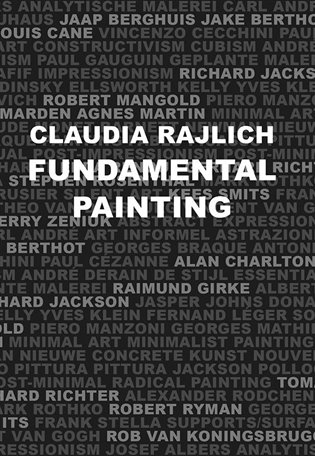
| Vaše cena | 318,50 Kč |
| Vaše cena bez DPH | 318,50 Kč |
| Dostupnost | Skladem > 5 ks |
| Odesíláme ve středu 11.3. | |
Fundamental Painting (1975): Lessons in Minimalist Painting is the first account of this 1970s current and its role in the history of 20th century painting. The term Fundamental Painting was coined by the Stedelijk Museum Amsterdam as the title of a 1975 exhibition that sought to highlight a new kind of painting emerging on both sides of the Atlantic. It was built around Robert Ryman and included 18 artists from Europe and the United States. The then museum director of the Stedelijk Edy de Wilde called their artistic scope "a reflection on the foundations of painting." In the first part of this book, Rajlich traces how the curators defined this specific current and its public as well as its critical reception. In the second part, she explains in detail the elements of paintings, how they are used in Fundamental Painting, and why. Next, Rajlich surveys the use of these painterly elements across 20th century abstract and non-objective painting in relation to the development of Minimalist painting. The last part of this book examines the effect of Fundamental Painting on its viewer in the context of art across the ages. It argues that Fundamental Painting goes beyond formalist concerns and seeks to engage with the concept of beauty as understood through the philosophy of aesthetics.
Claudia Rajlich is a specialist in 20th century art and painting in general. She has extensive experience as an author, curator and art advisor for both public and private institutions. Her recent research has focused on non-objective art, the art market, and interdisciplinary questions around art collecting.
Kniha Fundamental Painting (1975): Lessons in Minimalist Painting přináší první ucelené pojednání o fundamentální malbě a její roli v dějinách malířství 20. století. Termín fundamentální malba vytvořilo amsterdamské Stedelijk Museum a v roce 1975 jej použilo pro název výstavy, která se snažila upozornit na nový druh malby vznikající na obou stranách Atlantiku. Výstava představila 18 umělců z Evropy a ze Spojených států, včetně zakladatelské osobnosti Roberta Rymana. Tehdejší ředitel muzea Edy de Wilde označil jejich umělecké směřování jako "reflexi základů malby".
V první části knihy sleduje Claudia Rajlich, jak kurátoři definovali tento specifický proud a jak jej přijala kritická obec i veřejnost, ve druhé části pak autorka podrobně popisuje jednotlivé prvky obrazů a vysvětluje, jak je fundamentální malba používá a proč. Následně také zkoumá použití těchto malířských prvků v abstraktním a neobjektivním malířství 20. století ve vztahu k vývoji minimalistické malby. Závěr knihy je věnován působení fundamentální malby na diváka v kontextu umění v průběhu staletí. Autorka se domnívá, že tento druh malby překračuje rámec formalistických vymezení a že je významně provázán s konceptem krásy, jak jej chápe filozofie estetiky.
Claudia Rajlich se specializuje na výtvarné umění 20. století, zejména na malbu. Má bohaté zkušenosti jako autorka, kurátorka a umělecká poradkyně pro veřejné i soukromé instituce. Aktuálně se zabývá neobjektivním uměním, trhem s uměním a interdisciplinárními otázkami, které se týkají sbírání umění.
Autor: Claudia Rajlich